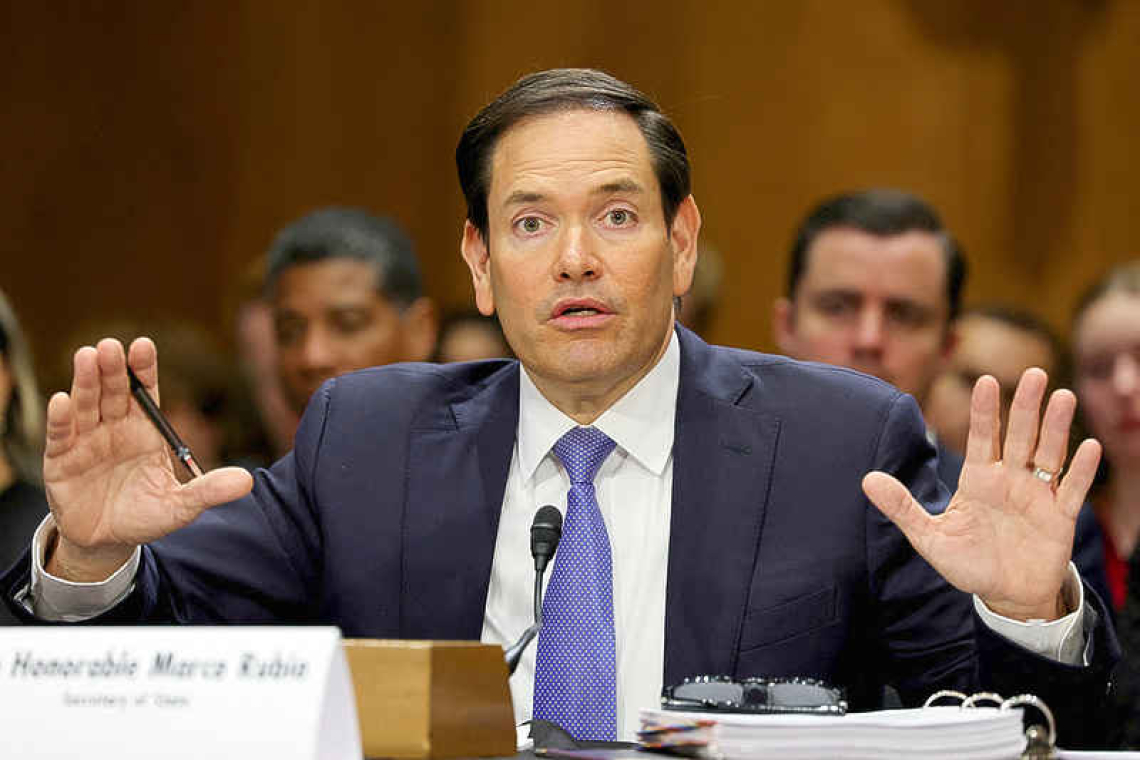WASHINGTON--U.S. Secretary of State Marco Rubio on Tuesday insisted that the country is not withdrawing from the world, as he batted away criticism of cuts to aid and diplomatic budgets from former colleagues in Congress, some of whom regret voting to confirm him because he has not stood up to President Donald Trump.
In sometimes feisty first testimony as the country's top diplomat, Rubio was challenged over his role in the administration's crackdown on immigration, Trump's engagement with Russian President Vladimir Putin and the decision to prioritize the resettlement in the United States of white South Africans over refugees from elsewhere.
Rubio said the intent of changes he is overseeing was "not to dismantle American foreign policy, and it is not to withdraw us from the world," citing his travel since taking office."I just hit 18 countries in 18 weeks," Rubio told the Senate Foreign Relations Committee. "That doesn't sound like much of a withdrawal."
Trump's administration has blocked mostly non-white refugee admissions from the rest of the world but has begun to resettle Afrikaners, the descendants of mostly Dutch settlers in South Africa, saying they faced discrimination and even genocide. South Africa's government denies the allegation of genocide.
"While you've turned away from a genocide in Sudan and invented one in South Africa, you've teamed up with President Trump to throw the Ukrainian people under the bus, and have been played like a fiddle by Vladimir Putin," Democratic Senator Chris Van Hollen of Maryland said in a blistering critique of Rubio's about-face on issues he embraced as a senator, adding that he regretted his vote for Rubio's nomination.
"First of all, your regret for voting for me confirms I'm doing a good job," Rubio retorted, before the hearing devolved into a shouting exchange, something unusual for a committee long known for bipartisanship.
On Russia, Rubio said Putin had not received any real concessions in the U.S. effort to initiate talks to end the war in Ukraine and Russia sanctions remain in place.
During a second hearing, several Republicans voiced support for aid and other forms of soft power. "This to me is national security in another form. And to the people who don't get that, you're missing a lot," said Republican Senator Lindsey Graham, chairman of the Senate appropriations foreign affairs subcommittee.
Rubio insisted many of the programmes he has cut did not serve U.S. interests, and that Washington would remain the world's most generous donor of humanitarian aid. The administration proposed a new $2.9 billion America First Opportunity Fund that would take on foreign aid, building on "lessons we learned from USAID," Rubio said.
Rubio said the $28.5 billion budget request by the Trump administration for the 2025/2026 fiscal year will allow the State Department to continue enacting Trump's vision while cutting $20 billion of "duplicative, wasteful, and ideologically driven programmes."
Rubio defended cuts to foreign aid - he was an advocate of such aid during his 14 years in the Senate - while slashing State Department staff and the U.S. Agency for International Development, which used to spend roughly $40 billion a year and is being folded into the State Department.
Senators also asked Rubio about Trump's plans to unwind Syria sanctions, Rubio's role in the administration's immigration crackdown, the delivery of humanitarian assistance to Palestinians in Gaza and efforts to end the war in Ukraine.







